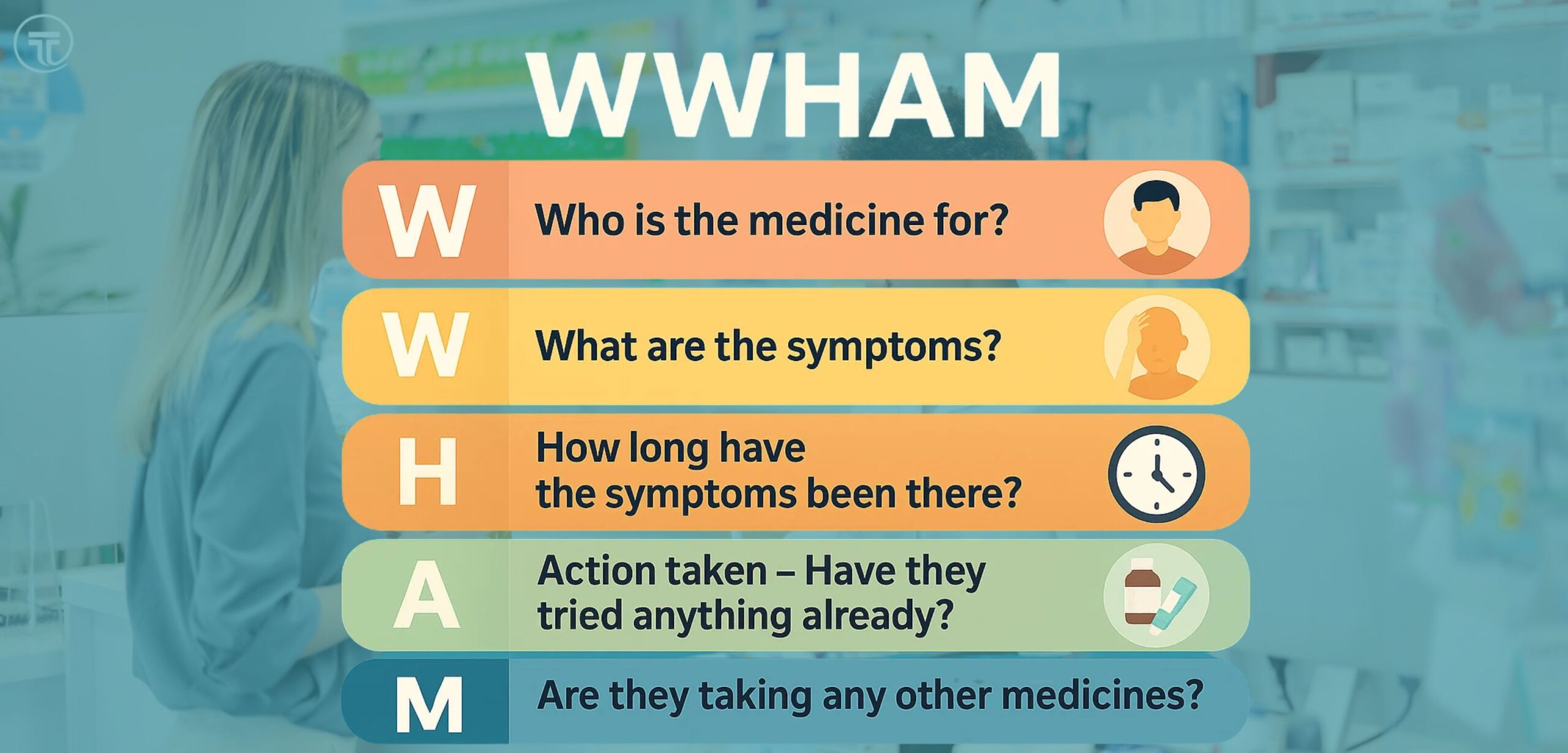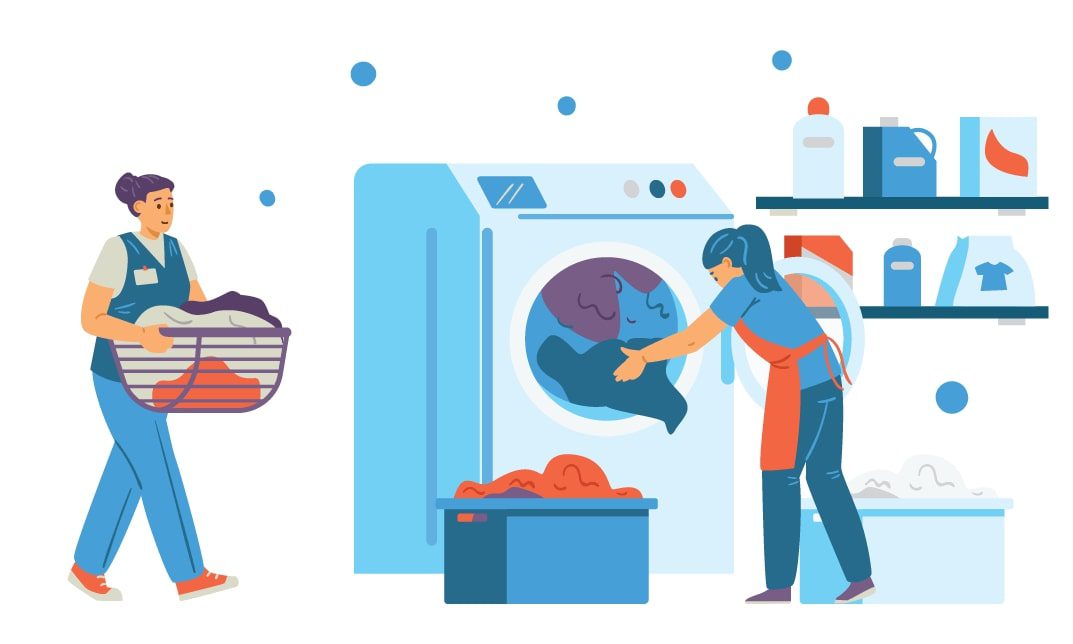No products in the basket.
Pharmacy assistant duties and responsibilities include helping people every day and supporting the pharmacist. You are often the first person customers meet, so a warm smile can make them feel welcome. The main job is to make sure patients get the right medicine safely and on time.
Protecting patient privacy is key, so all details are handled carefully under UK GDPR rules. Daily tasks include serving customers, checking stock levels, and giving simple advice. Above all, the role is about care, attention, and kindness — helping others feel supported and valued every single day.
In this article, we explore pharmacy assistant duties and responsibilities in detail. You’ll learn what this role involves, what tasks you’ll do each day, and how you’ll help both customers and pharmacists. By the end, you’ll clearly understand what it takes to be a great pharmacy assistant and how this role makes a real difference in people’s lives.

What Does a Pharmacy Assistant Do?
A pharmacy assistant’s job is busy, active, and full of learning. Every small task you do helps someone feel better or stay healthy — and that’s what makes it so meaningful.
Your day often begins by greeting customers and patients. A warm “hello” or kind smile can ease their worries and make them feel welcome. Many people visit pharmacies when they’re unwell or stressed, so a friendly face truly matters.
Pharmacy assistants help manage prescriptions — both electronic (EPS) and paper ones. You make sure the right medicine is ready, packed, and given to the right person. Accuracy is key because even small mistakes can affect someone’s health.
Another big part of your job is helping with over-the-counter (OTC) medicines. You might suggest cough syrup, pain relief, or vitamins — always within your knowledge and training. When a question needs expert advice, you guide the patient to the pharmacist.
Under the pharmacist’s guidance, you get medicines ready and label them. Each item is packed carefully, and shelves are checked to ensure medicines haven’t expired. You maintain a clean, tidy workspace and update simple records to help the pharmacy run safely.
Pharmacy assistants work in different places. Some are in high street or community pharmacies, where they see regular customers every day. Others work in GP-attached dispensaries or hospital pharmacies, helping with prescriptions for inpatients and outpatients. No matter the setting, your goal stays the same — to help people get the care they need, quickly and kindly. It’s a role that requires care, attention, and heart. Every “thank you” from a patient reminds you why this job truly matters.
Core Pharmacy Assistant Duties and Responsibilities
1. Handling Prescriptions
Pharmacy assistants take prescriptions, either electronic (EPS) or paper. They check the patient’s name, date of birth, and address. They also check if the patient needs to pay or is free.
Then, they send the prescription to the pharmacist to prepare. They explain when patients can collect their medicine and safely manage any items that are owed. Every careful check helps patients feel safe.
2. Customer Service and Advice

A friendly greeting makes patients feel welcome. Pharmacy assistants ask simple questions to understand minor illnesses using methods like WWHAM.
WWHAM stands for:
- W – Who is the medicine for?
- W – What are the symptoms?
- H – How long have the symptoms been there?
- A – Action taken – Have they tried anything already?
- M – Medication – Are they taking any other medicines?
If a patient has serious symptoms or possible medication problems, they always refer them to the pharmacist. They talk politely and keep all conversations private. Being kind and helpful can make a patient’s day better.
3. Stock Management
Pharmacy assistants check medicine expiry dates and rotate stock so nothing goes out of date. They make sure medicines are stored correctly at room temperature or in the fridge (2–8 °C). They record shortages and order more from approved suppliers. Controlled drugs (CDs) are handled very carefully following strict rules. Proper stock management ensures patients always get what they need.
4. Labelling and Dispensing Support
Assistants print labels and pick the correct medicine, strength, and quantity. They add warning labels and give the medicine to the pharmacist to check. Medicines that need to stay cold are kept in the fridge. Checking carefully prevents mistakes and keeps patients safe.
5. Health and Safety Duties
Keeping the workplace clean and safe is very important. Pharmacy assistants follow hygiene rules, wear PPE and manage spillages or sharps correctly. Controlled drugs are stored in approved cabinets, with proper records kept. Accurate and up-to-date records help the pharmacy run smoothly and safely.
6. Extra Support
Pharmacy assistants may also help with health campaigns, like flu jabs, blood pressure checks, or giving basic advice on minor illnesses. They answer phone calls, help patients find products, and sometimes support training for new staff. This makes the job varied and interesting.
Being a pharmacy assistant is a busy job, but it is also very rewarding. Every small action — greeting a patient, checking a prescription, or keeping the pharmacy organised — makes a real difference in people’s lives. Helping others and seeing their relief or gratitude gives the role its special value.
Additional Responsibilities

Pharmacy assistants do more than just handle prescriptions. They help the pharmacy run smoothly and make patients feel cared for every day.
- Assisting in Over-the-Counter (OTC) Sales: Assistants help customers pick the right medicines for minor illnesses. They suggest safe GSL/P medicines within their training limits. If someone needs stronger medicine or has a complex case, they always send them to the pharmacist. Sometimes, they guide patients to NHS 111 or their GP when extra care is needed. Being helpful and friendly makes patients feel confident and safe.
- Supporting Pharmacists and Technicians: Pharmacy assistants free up time for pharmacists and technicians by handling routine tasks. This can include checking stock, managing workflow or doing admin jobs. They work closely with pharmacy technicians to help with dispensing and accuracy checks. By supporting the team, assistants make it easier for pharmacists to focus on important clinical services like vaccinations, hospital rounds, or medicine reviews.
- Administrative and Record-Keeping Tasks: Pharmacy assistants also handle simple admin tasks that keep the pharmacy organised. They operate tills securely, process NHS forms or exemptions, and update patient records in the PMR system. In addition, they file delivery notes and controlled drug registers correctly and help manage queries and owed items to ensure patients receive the service they need.
Every small task matters. Greeting a patient, giving advice, checking stock, or updating records all help the pharmacy run smoothly. A pharmacy assistant makes the workplace efficient, safe, and welcoming — and every patient feels that care.
Skills Needed for a Pharmacy Assistant
To be a great pharmacy assistant, you need both practical and people skills. These help you work well, support your team, and make every patient feel cared for.
1. Good Communication and Kindness
Talking clearly and listening carefully are very important. You speak with patients every day, so being friendly and calm helps them feel safe. A warm smile, kind tone, and patience can make a big difference.
2. Attention to Detail
You must check every label, name, and number carefully. Even small mistakes can cause big problems. Being careful helps keep patients safe and builds trust in your work.
3. Organisation and Time Management
Pharmacies can get very busy. You might be serving customers, checking stock and printing labels at the same time. Staying organised and managing your time helps everything run smoothly.
4. Basic Maths and Computer Skills
You often use numbers when counting tablets or handling payments. You also use computers for patient records, emails and the PMR system. Knowing basic IT skills makes your work faster and easier.
5. Teamwork and Cooperation
Pharmacy work is all about teamwork. You work closely with pharmacists, technicians and other assistants. Sharing tasks and helping each other make the workplace more positive and efficient.
6. Problem-Solving Skills
Sometimes, things don’t go as planned. A medicine might be out of stock, or a patient might feel confused. Staying calm and finding simple solutions helps you handle any situation with confidence.
7. Safety and Responsibility
Safety always comes first in a pharmacy. You must follow all rules, double-check your work, and ask the pharmacist for help when needed. Being responsible shows you care about patients and your team.
8. Friendly and Positive Attitude
A cheerful attitude helps everyone. Staying polite and positive makes patients feel welcome and keeps your team’s spirits high, even on busy days.
9. Empathy and Patience
Some patients may feel unwell, worried, or tired. Showing empathy and patience helps them feel understood and respected. A kind conversation can make their day a little brighter.
10. Flexibility and Willingness to Learn
Pharmacy work changes often. New medicines, systems, or NHS services can appear any time. Being open to learning and adapting helps you grow in your role and stay confident.
11. Customer Service Skills
You meet many people each day — some happy, some stressed. Good customer service means staying polite, listening carefully, and helping every patient feel valued.
12. Reliability and Honesty
Your team and patients rely on you. Being on time, following rules, and being honest about any mistakes builds trust and respect.
13. Multitasking Skills
You may need to handle several jobs at once — serving patients, answering phones and checking prescriptions. Being able to switch between tasks smoothly keeps things running well.
These skills make you not just a pharmacy assistant, but an essential part of the healthcare team. With practice, care and a kind heart, you can grow in this role and make a real difference every single day.
Why Pharmacy Assistants Are Important in Healthcare
Pharmacy assistants are a key part of the healthcare team. Their work may seem simple, but it has a huge impact on patients and the whole pharmacy team.
Here’s why pharmacy assistants are so important:
- Keep pharmacies safe and organised – They make sure medicines are stored correctly, expiry dates are checked, and shelves are clean and tidy. This helps prevent mistakes and keeps patients safe.
- Offer care and kindness – Many people visit pharmacies when they feel unwell or worried. A kind smile or a gentle word from a pharmacy assistant can make a patient feel cared for and supported.
- Improve patient understanding – They help patients understand how to take their medicines safely, when to ask for help, and when to see the pharmacist or doctor. This improves health outcomes and builds trust.
- Keep everything running smoothly – From answering phone calls to handling deliveries, they manage many small but vital tasks. Without them, pharmacies would struggle to meet daily demands.
- Follow safety and privacy rules – Pharmacy assistants protect patient information, follow hygiene rules and make sure everything meets safety standards. Their careful work helps maintain public trust.
- Work well in a team – They cooperate with pharmacists, technicians, and other staff, making the workplace friendly and efficient. Good teamwork keeps the pharmacy calm even on busy days.
- Adapt to new tasks and technology – Pharmacies are changing all the time. Assistants learn to use new systems, follow new NHS services, and adjust to new ways of working. Their flexibility helps the whole team.
Play a big part in the community – Pharmacy assistants often know regular patients by name. They listen, offer support, and help people feel connected. This community care builds strong, lasting relationships.
FAQs About Pharmacy Assistant Duties
1. What are the 5 responsibilities of a pharmacist?
Pharmacists help keep patients safe and healthy. Their main duties include:
- Checking medicine quality.
- Preparing and labelling medicines.
- Following legal rules for medicine supply.
- Keeping the pharmacy clean and organised.
- Making sure each medicine suits the patient.
Their careful work ensures everyone gets safe and effective treatment.
2. What to say in a pharmacy assistant interview?
I enjoy helping people and have a strong interest in healthcare. As a pharmacy assistant, I can use my organisational skills to support patients and the team.
3. What are the duties of a pharmacy assistant?
A pharmacy assistant helps pharmacists by preparing medicines, serving customers, managing stock, and keeping records organised.
4. What skills does a pharmacy assistant need?
A pharmacy assistant needs good communication, attention to detail, organisation, basic IT skills, and the ability to work well in a team.
5. What skills do you need as a pharmacy assistant?
You’ll need good communication and customer service skills, patience, teamwork, attention to detail, and the ability to stay calm under pressure.
Final Thoughts: Is a Pharmacy Assistant Career Right for You?
Being a pharmacy assistant is more than a job. It means helping people every single day. You welcome patients with a smile, prepare their medicines, and help the pharmacy run smoothly.
Every small thing you do matters — explaining a prescription, restocking shelves, or being kind to someone who feels unwell. These simple actions build trust and comfort. The job can be busy, but it’s also very rewarding. With care, teamwork, and attention to detail, pharmacy assistants make healthcare safer and kinder. They are the heart of every pharmacy, helping people feel better and cared for each day.
If you love helping others and want to grow in this role, the Pharmacy Assistant Technician Course by Training Tale is the perfect next step.




